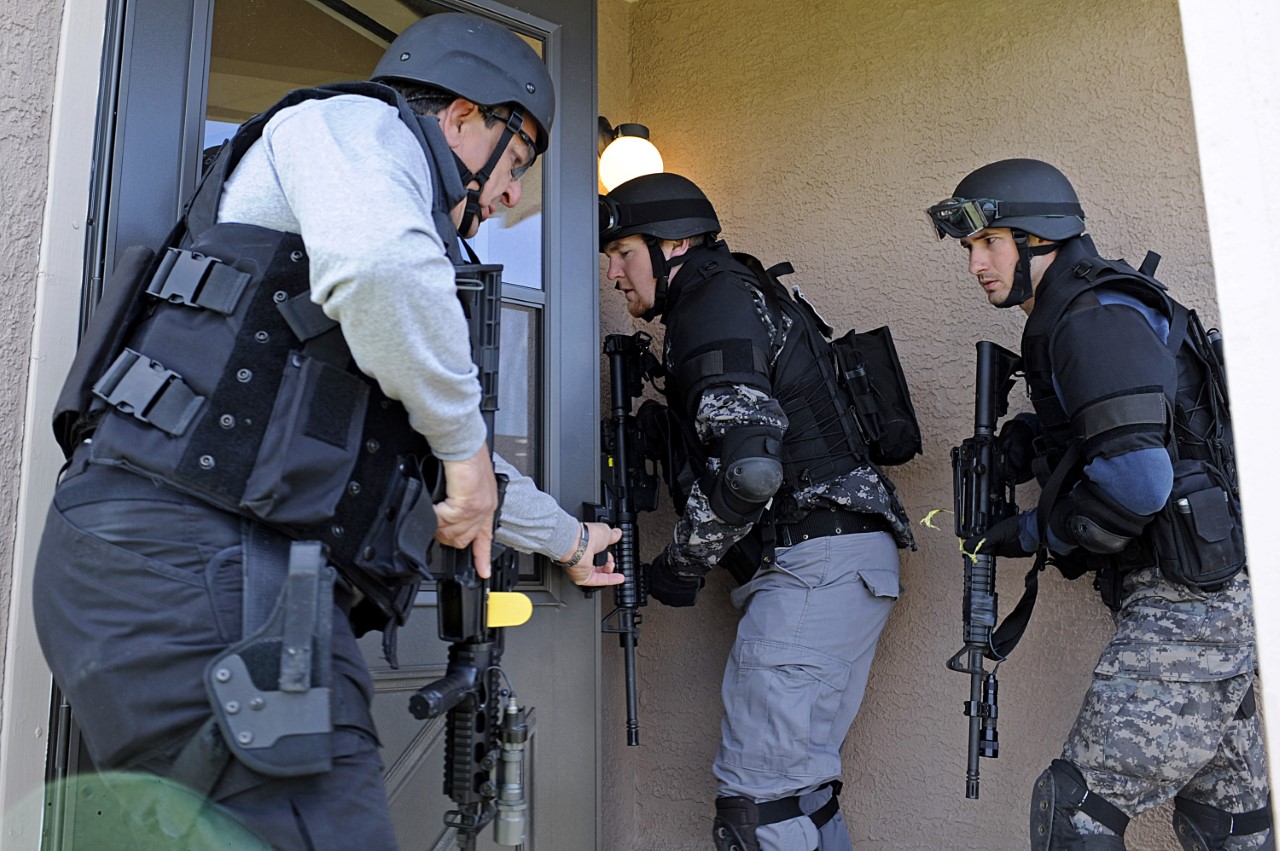
An arrest warrant generally does not allow the police to enter your home to search for a fugitive. There is no need to allow the police to enter your home when they do not have a search warrant. As explained by the Supreme Court in Georgia v. Randolph, 547 U.S. 103, 126 S. Ct. 1515, 164 L. Ed. 2d 208 (2006), when there are no exigent circumstances, a warrantless search is unreasonable as to a defendant who is physically present and expressly refuses to consent. In Minnesota v. Carter, 525 U.S. 83, 100, 119 S. Ct. 469, 478, 142 L. Ed. 2d 373 (1998) the Court stated:
It is now settled, for example, that for a routine felony arrest and absent exigent circumstances, the police must obtain a warrant before entering a home to arrest the homeowner. Payton v. New York, supra, at 576, 100 S.Ct. 1371. So, too, the Court held in Steagald v. United States, 451 U.S. 204, 101 S.Ct. 1642, 68 L.Ed.2d 38 (1981), that, absent exigent circumstances or consent, the police cannot search for the subject of an arrest warrant in the home of a third party, without first obtaining a search warrant directing entry.
Id.
A physically present resident’s express refusal of consent to search is dispositive. The refusal should be clear and unequivocal.
Austin Criminal Defense Lawyer
David Frank has been an Austin Criminal Defense Lawyer since 1993. He is Board Certified in Criminal Law by the Texas Board of Legal Specialization. An attorney who is Board Certified by the Texas Board of Legal Specialization in Criminal Law must have experience in the preparation and trial of serious criminal matters. The attorney must also have extensive knowledge of state and federal constitutional law, evidence, procedure and penal laws involved in the trial of these matters.



Leave a Reply